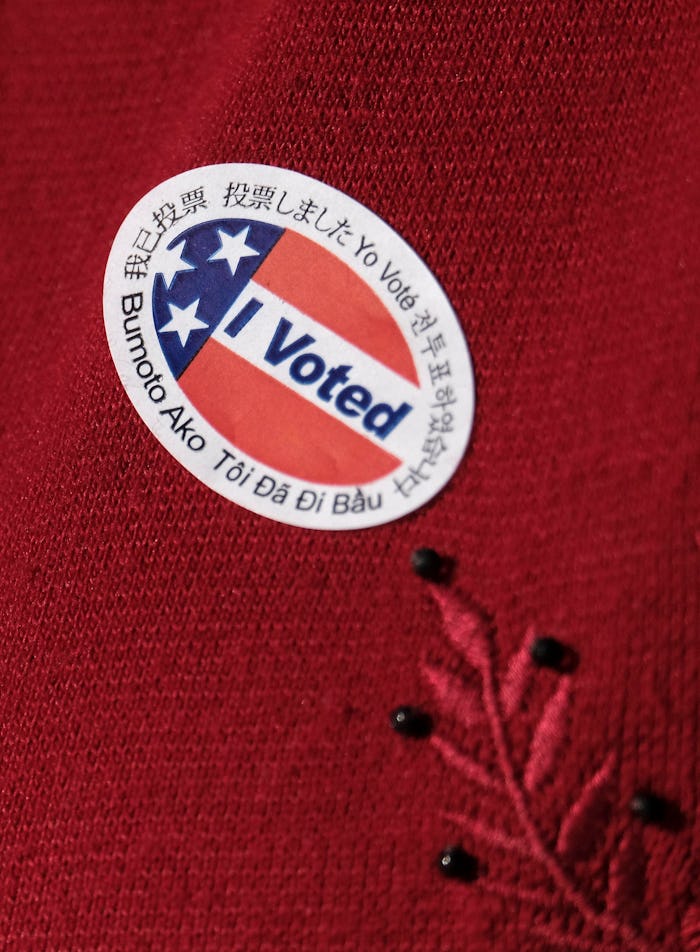
Which State Has The Most Electoral Votes? It's Not Quantity That Makes A State Pivotal
In mere hours this Election Day, very, very soon after the polls officially close, news of which presidential candidate likely won each state will begin to eke out, and both Hillary Clinton and Donald Trump will embark on the final phase on their quests to win at least 270 electoral votes. And precisely because they're after those electoral votes — meaning that each will emerge with all the votes allotted to a state in which he or she wins the popular vote, á la the esoteric and sometimes counterintuitive Electoral College — some states are much more coveted than others. So, the state that has the most electoral votes won't necessarily be the one that grabs the attention of the media, political pundits, politicians, and the American people, as all of us anxiously anticipate whom our next POTUS will be.
The complex workings of the Electoral College, or the collection of representatives from each state who will formally cast ballots for president, make it so that the two states with the most electoral votes factor into the candidates' aggressive campaign strategies much less than seems logical. California and Texas top the list with 55 and 38 votes, respectively, but both are "safe" states — so both Clinton and Trump pumped waaaaay more resources into more competitive states like Ohio and Pennsylvania.
Below is a list of the states that boast the most Electoral College votes. Some are critical swing states, others are hardly on the candidates' radars, and whether or not a state is pivotal doesn't have much to do with quantity.
California (55)
California boasts more Electoral College votes than any other, but the fact that it reliably votes blue makes it a less-than-attractive state for either the Republican or Democrat presidential candidate to pursue with any kind of excess verve or heavy allocation of resources. It's the biggest, but not the baddest, if you will.
Texas (38)
Ditto for Texas, except the Lone Star State traditionally votes to elect a Republican — or, more specifically, votes to send a conservative batch of electors to cast ballots for president on behalf of the state at a gathering that will take place in December. Confusing, but the bottom line is that bigger doesn't equal more electorally important in this case either.
New York and Florida (29 each)
Both of these states have 29 electoral votes, but the similarities end there. It would be shocking is Clinton did not prevail in both candidates' home state of New York this Nov. 8, as polls reliably have her winning there by a double digit margin. In Florida, by contrast, history shows that it could be the toss-up that makes or breaks the election for a candidate, as Al Gore lost it by a mere 537 votes in 2000, losing all of the electoral votes at stake there, and, therefore, the entire election to George W. Bush.
Pennsylvania (20)
It doesn't have the most electoral votes, but Pennsylvania carries tremendous sway in 2016. Earlier in the election, it seemed like a key component in Trump's surest path to victory, according to The New York Times, but as seemed to lean Democratic with the polls in the lead-up to the election.
Ohio (18)
There's a reason why Hillary Clinton opted to host her joint concert-rally with Beyoncé and Jay Z in Cleveland, Ohio, the Friday before Election Day. Ohio is one of the most marginal states, according to The Independent, frequently oscillating between electing Republican and Democratic candidates. The state went to Republican George W. Bush in both 2000 and 2004, and to Democrat Barack Obama in 2008 and 2012 — each time reflecting the ultimate winner of the race overall.
Criticisms of the Electoral College system assert that it renders millions of votes in safe states like California and Texas inconsequential because of the winner-take-all setup, but that doesn't make it any less of our civic duty to vote, vote, vote.